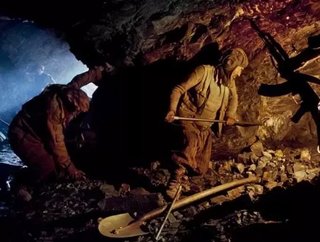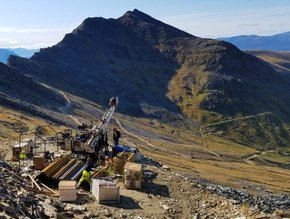US to Partner with Afghan Universities to Develop Mining Industry

For the next six months, professors from two U.S. universities and one Turkish university will be training professors from the Polytechnical University in Kabul in modern mining techniques. The Defense Department’s Task Force for Business and Stability Operations has provided a half-million dollar grant to develop the partnership between these international universities.
Professors of geology and engineering from the Missouri University of Science and Technology, the University of Nebraska and the Middle East Technical University in Turkey have begun training seven professors from the university in Kabul; the first session was concluded early last week.
“We’re going to start the next training program in Turkey in July, and then [conduct] follow-on training programs in the U.S. and also back in Kabul as well,” said Shannon Gallagher, project manager for the task force’s mineral program. Face-to-face meetings will be supplemented with additional sessions that will take place via teleconference, she included.
The program focuses on professors from Kabul’s faculty of Geology and Mines who have a strong commitment to remain in the geology department. The idea behind the grant is that these professors will train their fellow faculty and students in these new, sustainable mining techniques, and that a lasting relationship between the countries and universities will form – one that will continue beyond the scope and timeframe of the grant.
“Even though the grant is six months, the train-the-trainer design of the program is meant to create a long-term mining and geology program at KPU. The students that are going to be receiving this knowledge are going to be going out into the sectors in Afghanistan – the Afghanistan Geological Survey, the Ministry of Mines and Petroleum and other mining companies that are going to be sprouting up in Afghanistan, so the long-term impact is substantial,” Gallagher said.
There is a determined two-pronged approach to the education plan. First, prospective mining areas are being offered with the intention to spark the mining economy, or rather a mining industry that will support the economy in the area. The second is the education sessions, with the goal of bringing Afghanistan’s mining and geology experts up to speed on modern, sustainable mineral exploration and extraction methods.
There are seven courses planned, and curricula and professional development programs are in the process of being developed.
“The courses […] will incorporate modern techniques regarding social and environmental concepts in the mining, engineering and geology field,” Gallagher said. The curriculum will be modeled on teaching methods and curricula used at the American professors’ own universities, “which emphasize a modern and clean mining industry,” Gallagher continued. “TFBSO encourages responsible development of Afghanistan's rich mineral wealth.”
Information sourced from the U.S. Department of Defense
- Top 10 electric mining tools (and companies that use them)Technology
- SSR Mining acquires 40% stake in Hod Maden from Lidya MinesSupply Chain & Operations
- Startup Arkon Energy pours $28m into Bitcoin miningDigital Mining
- Mining news roundup: investments, restarts and vehicle testsSupply Chain & Operations






